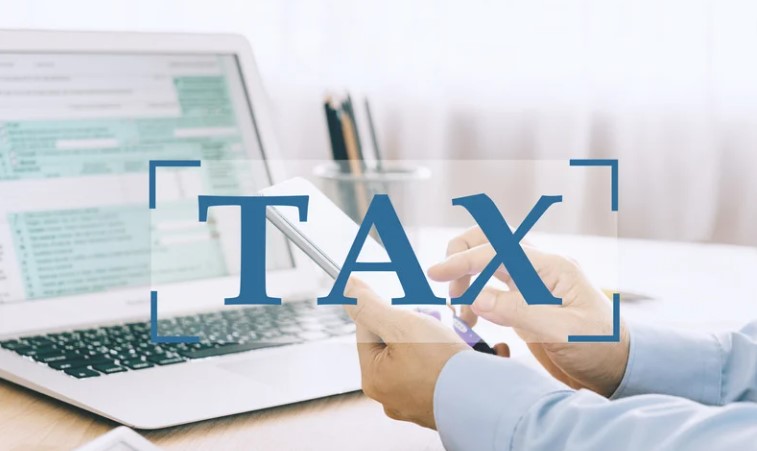The federal tax rate is essential whether you’re a small business owner or an accountant. It affects what kind of deductions you can claim on your personal and business taxes and how much profit you can make. Luckily, there are ways to save on your taxes by finding loopholes and loopholes within those loopholes! This guide will explain everything about how much can a small business make before paying taxes in Canada.
How Much Can a Small Business Make Before Paying Taxes in Canada?
You can choose to be a small business in Canada. The tax rate for small businesses is lower than that of larger corporations, and it’s also easier to qualify for certain incentives.
Small businesses can earn up to $500,000 annually without paying taxes on their profits. If you make more than this amount, then you will have to pay taxes on the additional amount that exceeds $500K
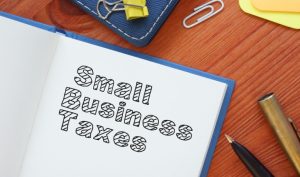
The tax rate for small businesses is lower than that of larger corporations, and it’s also easier to qualify for specific incentives. For example, small businesses can earn up to $500,000 per year without paying taxes on their profits.
Business expenses are also known as overhead costs or overhead expenses. They’re any costs incurred in the course of doing business, including those above. Depending on how often and long they occur, these can be fixed or variable. For example, renting space in an office building is a fixed cost because it won’t change unless your company grows and needs more room.
What Qualifies as a Small Business?
In Canada, the definition of a small business is flexible and depends on many factors. The most common way to define it is any business with less than $10 million in revenue or assets. However, there are exceptions for specific industries and types of businesses.
If you’re unsure whether your company qualifies as a small business, consult a tax professional who can help determine its status based on these factors:
- Whether or not it has employees who perform services at least 50% of the time
- How long they’ve been in business
- Whether they offer services to other businesses or just individuals within their own community (such as plumbers)
- Whether they produce goods or provide services with manufacturing units more than 1000 yards that would be considered “large” under Canadian tax law
What Counts as a Business Expense?
A business expense is any out-of-pocket expenditure that you make for your business. It doesn’t matter if the money comes from your personal bank account or if a third party, like a supplier or client, pays for it.
Examples of common business expenses include:
- Renting space that you regularly use in order to keep your doors open;
- Repairing equipment used for production (e.g., tools and machinery);
- Paying staff members’ salaries; and more!
Canadian Small Business Tax Rate

The small business tax rate is 11%, and the federal small business tax rate is 11%.
The provincial small business tax rate varies by province, but in most cases, it’s 5%. The combined federal and provincial small business tax rate (federal + provincial) is 16.5%, which means if you’re a small business owner with an annual revenue of $100k or less, your total taxes should be around $1650 per year or less than half what it costs to run a large corporation.
Taxes levied on Corporations
Corporate taxes are levied on corporations in Canada. Corporation tax rates range from 0% to 20%. The lowest rate applies to small businesses, and the highest applies to large international corporations with assets over $500 million (or $1 billion if they’re based outside of Canada).
A corporation’s taxable income is calculated by subtracting expenses, including interest paid by the business, from its gross revenue. The net profit or loss is then taxed at a flat rate of 10%, 15%, or 20%. If your company has more than one type of business activity that generates income, you’ll pay different rates depending on what type of operation it is–for example:
- Manufacturing – 15%
- Wholesale trade – 25%
- Retail trade – 30%
Why is the Small Business Tax Rate Important?
The Small Business Tax Rate is essential because it helps determine the tax rate that small businesses pay. This can be helpful to you as a business owner because it will allow you to plan for your future and ensure that your company can grow without paying too much in taxes.
The Small Business Tax Rate applies to both corporations and non-corporations, including trusts, partnerships and sole proprietorships (or SPCs).
How Much is a Small Business Taxed in Canada?
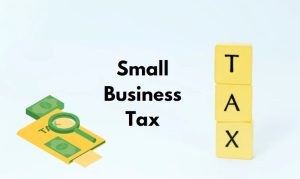
Knowing the difference between a small business and a large corporation is essential to determine how much you’ll pay in taxes.
Large corporations are subject to a higher tax rate than small businesses because of their larger profits. The federal government has an average corporate tax rate of 29%, while some provinces have even lower rates.
The size of your company can also affect your taxable income and consequently impact your tax bill too. For example, a smaller company might pay less than its larger counterpart because it doesn’t produce as much taxable income or has fewer employees (which means fewer wages).
For example, a small corporation’s average corporate tax rate is 20%, significantly lower than the federal government’s prevailing rate. You can also reduce your taxes by incorporating as an S-corp or limited liability company (LLC). These entities allow you to deduct certain business expenses from your taxable income and pay a lower tax rate.
CRA Interpretation
The CRA has a flexible interpretation of receipts. It does not matter if you receive $1 or $100 from customers as long as there is a clear intention that the customer pays for something. This means that if you have a business where customers pay for products and services with their credit cards, then all amounts the business receives can be considered receipts.
For example:
- If someone buys your product at full price (and they do not return it), then this would be considered as a receipt because they paid in full before taking possession of it.
- If someone buys your product at half price (and they do return it), then this would also count as a receipt since they still paid twice – once when buying it and again when returning it.
What Are the Best Ways to Save on Taxes?
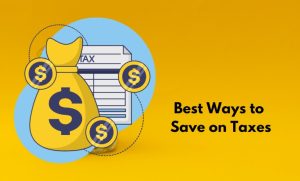
To understand how much you can save on taxes, it’s essential to understand the tax code. The Canadian federal government has two main types of taxes: personal income tax and corporate income tax.
Personal income refers to taxes paid on your net earnings from employment or self-employment; this includes salaries, tips and commissions earned in a job and other sources such as rental income (if you own a home). The amount of these payments is based on an individual’s annual taxable income level, which changes every year based on inflationary adjustments made by the government.
Corporate income refers specifically to businesses that are incorporated within Canada; this includes business profits from sales made through certain channels, such as retail stores or wholesale outlets located within Canada’s borders (but not including sales from overseas).
Unlike personal income tax, which applies only once per year at the time of filing returns in February each year, corporate investors have several options available when calculating their overall return expectation, including applying for various deductions such as capital cost allowance (CCA) before determining their final tax bill.
The government also provides a wide range of deductions for small businesses, including the ability to claim up to $500 in travel expenses per year; this includes airfares for business trips and parking fees incurred when travelling via car or bus.
Keeping Business Accounting Records
The first step to determining how much you can make before paying taxes in Canada is keeping business accounting records for at least 7 years. This will help ensure that your tax return is accurate and up to date and allow you to defend yourself against an audit.
You should also keep receipts for all business expenses, income and expenses, transactions, assets and liabilities (if applicable). If there are any discrepancies in the information provided by other sources or if additional documentation becomes necessary during a tax audit process, then these items must be kept up-to-date so that no errors continue to be made during future filings with CRA.
What Documents do I Need to Keep as Business Records?
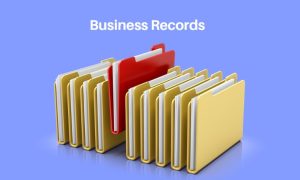
As a small business, you must keep receipts for all how much a small business can make before paying taxes in Canada for your expenses. These can be anything from office supplies to advertising costs–the more you spend on a service or product, the more likely it is that you will have to record it as an expense.
You’ll also want to keep bank statements and credit card statements so that you can see where your money goes each month. If there are any cash transactions from customers, such as cash advances or purchases made with debit cards, make sure they’re recorded somewhere too! This data is extremely helpful when trying to determine if there’s been any fraud in your company (and whether or not this person might be stealing from others).
You should also make sure that insurance policies are up-to-date, so they cover all areas necessary for running your business properly; this includes things like liability coverage and property damage protection along with other types of protection such as workers’ compensation benefits if needed by employees during accidents related directly back into their work environment.
Conclusion
If you are a Canadian small business owner, you know how important it is to take advantage of tax deductions. The next time you need to determine how much money your business will make or how much tax you owe for the year, consider consulting with a professional accountant. They can help ensure that every dollar counts!




